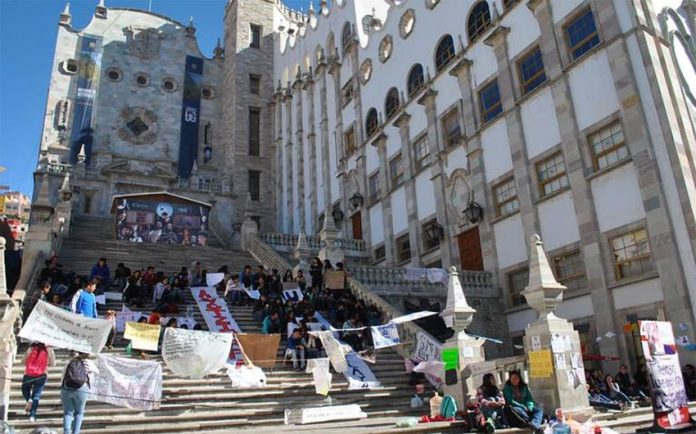Today I watched a new show on Netflix — Tiny House Nation. In the episode that I saw, the parents of a family with three college-age children had decided to sell their big house in favor of a “tiny house” the size of a large trailer.
Part of the driver of this decision was to be able to pay for their last child’s college education.
I love these kinds of shows. Decorating and organizing physical spaces is a passion of mine, and I’m liable to binge watch them all day if left unattended.
This one did not disappoint: every piece of furniture was also a drawer for something (brilliant!), and sleek, evolved versions of the Murphy Bed — something I’ve always wanted but have never needed — seemed to fold down from every wall so that the kids could stay with them when they visited.
It was an admirable and loving sacrifice the parents made, but I can’t help but notice that its “feel-good” vibe is overshadowed by what, to me, is a sinister and shocking circumstance: the fact that a college education in the United States costs literally as much as a house.
If it weren’t for a rich great uncle that never had children, I would likely not have gone to college at all. I’m sure I might have done a couple of years at a community college, but my grades weren’t quite excellent enough nor my immediate family quite poor enough to qualify for “full ride”-type financial aid or scholarships.
As it was, I was able to attend a good private university, which of course has led me down a winding road to where I am now.
It’s no secret that I’m a pretty big fan of President López Obrador, but when he suggested recently that universities here in Mexico should do away with entrance exams, I cocked my head in confused incredulity.
While I agree with him that there should certainly be enough space in free(-ish) public universities so that the students who qualify and wish to go can attend, it’s hard for me to understand how professors could teach to and accommodate such a wide array of student levels in the same class.
Of course, students would have to pass their high school courses, though it’s hard to say that even that would be enough preparation.
Also, though this might not be a popular opinion: not everyone is cut out for university study, and that’s OK. There are many important jobs that do not require a university degree, and still others that do require it, but shouldn’t; for many, a few courses followed by a longish apprenticeship will do.
Mexico does indeed have a system for students to learn trades that don’t require university education, and it’s something I wish we could see more of in the U.S., as well. Unfortunately, many see these trade schools and programs as less prestigious, and even more unfortunately, the jobs that are found after graduation are often not well-paid.
At the root of AMLO’s opposition to admissions exams seems to be the belief that only those who go to college get “good” jobs that pay a decent salary, and to a large extent, that’s true. To me, this is the real scandal. There are many jobs that desperately need to get done, but are paid as if they hardly had any value at all.
The workers who collect our trash provide an invaluable service. So do the (mostly) women who care for our little ones in nurseries and daycares. When we go to the market or the store, we need people to help us find things and check out. We need city workers to keep the roads and public spaces clean and functional. Let’s stop seeing people’s jobs as less important because “anyone could do that.”
Perhaps anyone could, but not everyone would, and indeed, everyone is not.
The fact that a reasonable standard of living can’t be expected by someone who works hard is the real sin of “neoliberalism.” If students want to further their education because they are interested in certain fields that require a lot of study, perfect. But let’s stop assuming that only people who have gone to college have value as workers.
After all, this is how capitalism works: even if everyone in the society tried equally hard and had an equal degree of natural talent, society would still be stratified. Not everyone can be an engineer, and if everyone decided to be, it would of course be a disaster.
(I’m reminded here of an experiment described in the novel Brave New World, in which they created a batch of genius “alpha” humans and sent them to live in an isolated area together. As you might guess, it collapsed right away because everyone thought they were too smart to do the “drudge” work.)
Energy spent criticizing college entrance exams, I believe, could be better spent promoting and supporting trade schools and programs. We could likewise spend our energy thinking about how to make sure that the workers of “the jobs anyone can do” are paid as if their jobs were important, because they are. No one who works hard — no matter the area — should be living in poverty, period.
In my family, going to college was a given; deciding not to didn’t even enter my mind as a possibility, and my high school career was in preparation for that level of study. As an adult, I often wonder what would have happened if instead I’d asked my uncle to teach me how to invest the money and buy homes to rent out like he did. I could have used a bit to take some carpentry classes, something I’ve always been interested in.
I didn’t know there were other options.
Let’s educate our current young people about the options that they do have, and help them to build, with us, a society that values all of its members, no matter what education level or job they have.
Sarah DeVries writes from her home in Xalapa, Veracruz.










